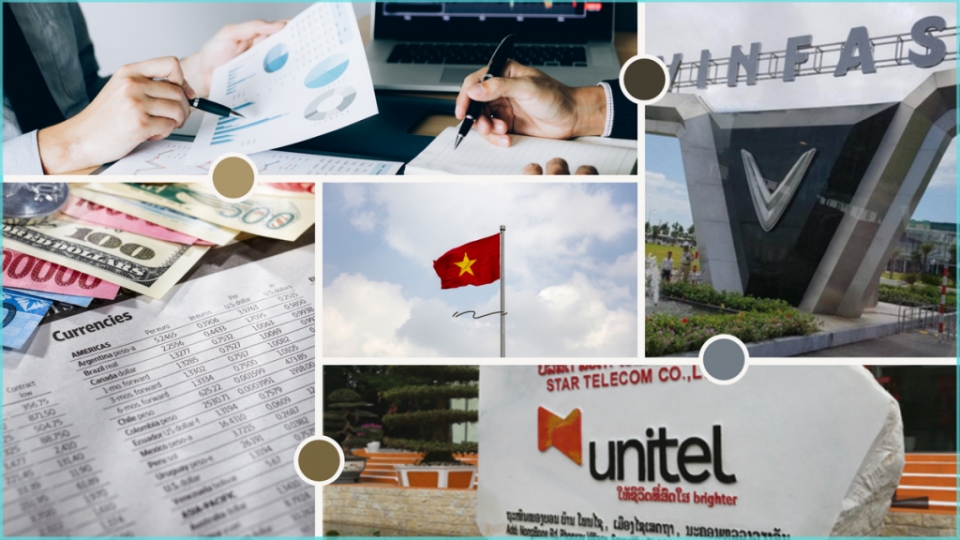Vietnam mulls scrapping licences to unleash outbound investment
The Ministry of Finance has proposed scrapping the current overseas investment registration certificates to ease capital outflows, suggesting a simplified foreign exchange management mechanism in their place.

The proposal was raised in the draft revision of the Law on Investment.
Under the draft, the ministry proposed removing the requirement for investors to obtain approvals from the National Assembly, the Prime Minister and the Ministry of Finance before investing abroad. Instead, investors would only have to register their capital transfers with the State Bank of Vietnam (SBV).
The ministry said that this would help improve the management of outbound investment by focusing on monitoring actual capital flow. Investors would register with the SBV only after securing relevant investment documents from the recipient countries, such as investment certificates, company establishment certificates and capital contribution contracts.
This reform also helps reduce administrative burdens, save time and costs for investors, enhance their competitiveness and facilitate quicker access to business opportunities in overseas markets, the ministry said.
The SBV would monitor investment flows to assess impacts on the balance of payments and foreign reserves. Banks would also have tools to enforce compliance, including suspending capital transfers or freezing investment accounts in case of violations.
Under current regulations, outbound projects with capital of VND20 trillion (US$760 million) and special mechanisms require National Assembly approval; those above VND800 billion and VND400 billion in sensitive sectors such as banking, insurance, securities, media and telecommunications require the prime minister’s approval.
Complicated licensing procedures are limiting investors’ freedom and slowing down decision-making, the ministry said.
Under current regulations, investors who want to transfer capital abroad must go through several steps to apply for licences in Vietnam, with the management agency required to approve in detail the forms, scale, location and capital sources of the projects.
This approach is unreasonable because the projects must comply with the laws of the recipient country, which are not subject to Vietnam’s law, the ministry said.
Another problem is that the current mechanism focuses on project approval, but it is difficult to bind the responsibility of investors after they have transferred money abroad. In fact, the main goal of investors is to conduct foreign exchange transactions to implement projects and business abroad. If the procedures are complicated, investors may miss opportunities, especially with deals that require quick decisions, the ministry added.
International experience shows that most countries only control the flow of money transferred abroad and apply restrictions in some cases to ensure macro-economic balance and legality of capital sources.
Currently, only Vietnam, Laos and Indonesia maintain licensing for overseas investment. China still grants licences but has loosened regulation, only managing large-scale projects or projects in specific fields.
Other countries have switched to a mechanism in which investors register capital transfers abroad with the banking system.
Switching from a licensing mechanism to a foreign exchange management approach meets the State’s supervision requirements, improve business freedom and enhance the competitiveness of Vietnamese firms in the international market, the ministry stressed.
Removing licences and replacing them with a registration and post-check mechanism would be a bold institutional reform to facilitate private sector expansion abroad, according to lawyer Nguyen Hong Chung, CEO of DVL Ventures.
This would cut administrative hurdles and give firms greater flexibility as well as align with Vietnam’s policy of promoting private sector development and global integration, said President of the Vietnam Association of Foreign-Invested Enterprises Nguyen Anh Tuan.
Phan Huu Thang, president of the Vietnam Industrial Park Finance Association, said the reform is essential to unleash the outbound investment, especially with the Politburo’s Resolution 68 opening new space for the private sector.
Experts also urged a comprehensive national strategy for outbound investment as well as incentives for repatriating profits.
The draft law also presents two other options for overseas investment licensing.
Under the second option, the procedure for approving overseas investment policies, which is currently under the authority of the National Assembly and the Prime Minister, would be abolished. The procedure for granting overseas investment certificates would be required only for projects with capital of VND20 trillion or higher. Those below VND20 trillion would only need to register foreign exchange transactions with the SBV to transfer money abroad.
The third option is to keep the regulations unchanged.
Previously, the Vietnam Chamber of Commerce and Industry also proposed abolishing overseas investment registration certificates, adding that complicated procedures in Vietnam undermine opportunities for firms in foreign markets while creating significant burdens for investors, because any change requires adjustments in certification.
The ministry cited statistics showing Vietnam has 1,916 overseas projects worth a total of US$23 billion as of the end of June. Of these, 67% have capital below VND20 billion. Just 28% have capital of VND20 billion or higher, but account for over 98% of total overseas investment.
The rest are mainly projects with capital of less than VND1.2 billion.
In the first seven months of this year, Vietnamese investors disbursed US$528.5 million abroad, 3.5 times higher than over the same period last year.
Major recipients included Laos (US$150.3 million), the Philippines (US$61.8 million), Indonesia (US$60.5 million), Germany (US$50.6 million) and the US (US$31.2 million).
Vietnam’s overseas investment totalled nearly US$664.8 million in 2024, rising by 57.7% over 2023.



